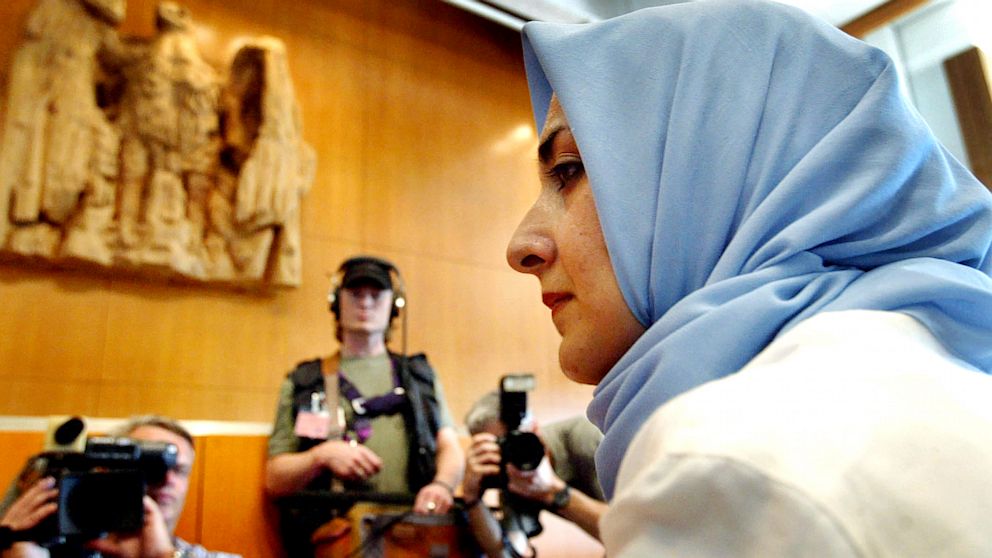Lawyers Seek Clarity on Headscarves in Court
Experts say the lack of legal clarity is unsustainable.

Sept. 22, 2013— -- The German court system has a patchwork of rules and regulations about whether female lawyers should be permitted to wear the hijab, or Muslim headscarf, in court. Experts say the lack of legal clarity is unsustainable, and that a big debate is brewing.
Three times judges have taken issue with the headscarf worn by one female lawyer in Berlin. They declared that by wearing it, the lawyer, as an "officer of the court," was in violation of the ideological and religious neutrality of the justice system. All three times the Muslim lawyer, who has requested to remain anonymous, agreed to compromise.
For two of the trials in question, the lawyer removed her headscarf, under which she wore, in the words of Berlin court spokesman Ulrich Wimmer "a type of cap." In the third case, Wimmer says, the lawyer "wore her headscarf differently, fastening it the back so that it looked more like a peasant's headscarf." The judges were satisfied, finding that with these changes the lawyer's head covering "no longer had a religious appearance."
All three trials in question -- concerning a rear-end collision; a car that collided with a taxi while pulling out of a parking spot; and a crash in an intersection -- were thus able to proceed. In the future, however, the lawyer says she is no longer willing to make such "demeaning compromises." If a judge again takes issue with her headscarf, she plans to file a complaint with Berlin's constitutional court. The bar association has promised her both financial and personnel support.
Can a lawyer wearing a headscarf in court be reconciled with the justice system's constitutional obligation to maintain ideological and religious neutrality? This is a fundamental question that high-level judges in Germany may soon face. Versions of this question have already been raised elsewhere. For example, may an officer of the court wear a yarmulke, as occurred in the local court of the Berlin city district of Lichtenberg? May a court stenographer wear a headscarf? Should the justice system allow a trainee lawyer in a robe and hair covering to represent the public prosecution during a trial?
In each of these cases, the conflict over a piece of cloth boils down to one key question: How secular should our justice system be? Or, in other words, to what degree are religious symbols acceptable in the justice system of a multi-religious society? Should, for example, a crucifix be allowed in the courtroom, as has been the case at the National Socialist Underground (NSU) trial? A member of Turkey's parliament has objected to this, saying the presence of a crucifix is a violation of the principles of a secular, constitutional legal system and amounts to a threat to all non-Christians, especially the Muslim family members of the right-wing extremist group's alleged murder victims.
Headscarves Pervasive in Courts
Among lawyers and experts outside the justice system, there is little support for the compromises the Berlin lawyer has had to make on the matter of her headscarf. Women's rights activist Seyran Ates, who herself works as a lawyer in Berlin, calls these "compromises with a bitter aftertaste" and says the question of headscarves is not an issue on which compromise is possible. Mathias Rohe, a law professor in Erlangen who specializes in the legal status of Islam, believes the legal system "cannot sustain its cumbersome and aimless approach to the headscarf."



